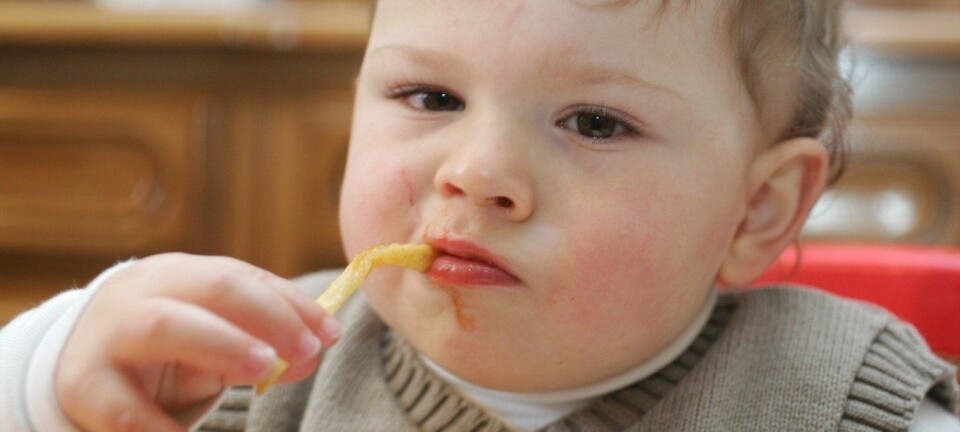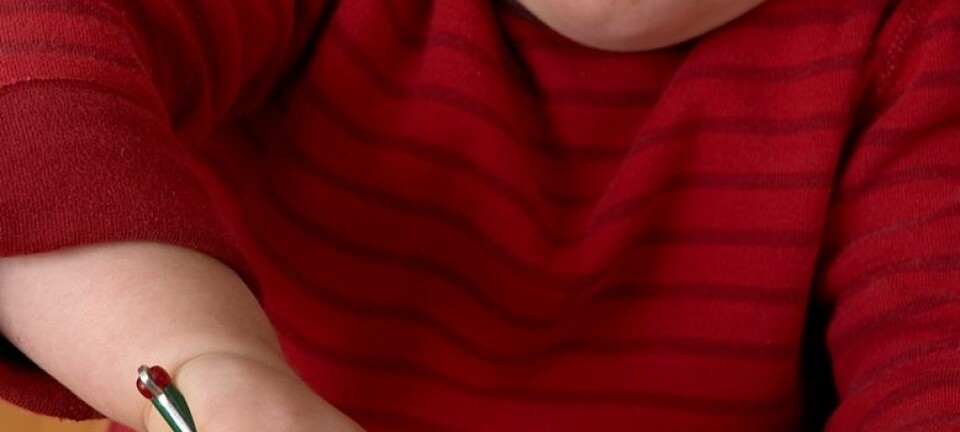
Parents are blind to their children's excess pounds
Parents don’t see it when their children are overweight -- rather they worry they could be too skinny. But does the responsibility for children’s weight problems lie with the parents alone?
Roughly 20 per cent of Danish children are overweight and while it’s easy to blame the parents, are they really the best judges when it comes to spotting those extra pounds?
Probably not, says Susann Regber from Gothenburg University, Sweden, who has just finished her Ph.D. thesis which shows that half of North and Central European parents of overweight children are unaware of their children’s obesity. In fact, about 40 per cent of parents of overweight children are worried that their children are underweight.
“Many parents simply are not aware their children are overweight,” she says. “It constitutes a major health issue, and if it is not spotted in time it’ll be harder to rectify.”
This general European pattern holds true for Danish parents as well, says clinical researcher on the children’s ward at Hvidovre Hospital in Denmark, Anne Brødsgaard, who’s carried out a similar study in Denmark.
Psychological mechanisms could be a factor
As part of the PhD study, Regber measured the BMI of 16,220 European children aged two to nine years and compared the results with the parents’ estimation of their children’s weight.
This revealed that half the parents fail to notice when their kids were overweight. However, the issue is even more serious in Southern Europe where 75 per cent of parents with overweight children had no idea that their children weighed too much.
At the same time, parents with overweight or obese children were more worried that their children might be underweight than parents of children who were, in fact, underweight.
The health system carries part of the blame
There could be several possible explanations as to why so many parents fail to notice when their children are overweight -- but the health system carries part of the responsibility and needs to improve communication with parents, says Regber.
“My study shows that visiting nurses feel that children’s weight is a sensitive topic that could cause a conflict and they simply don’t know how to communicate these issues to the parents,” she says. “They’re worried that parents will find it humiliating. Consequently, parents are simply not told in a manner that is plain and clear.”
Regber’s thesis also shows that it’s very common for the health system to look at body weight in relation to the child’s age in order to judge whether or not the child is overweight. That often means that visiting nurses arrive at the wrong result. Instead, they should be looking at weight in relation to height, which is also known as BMI, she says.
“School nurses would benefit from using a computer to calculate BMI. The computer could then produce a graph that would show the parents the weight of their child in relation to the recommended level. That would ease communication for all parties,” says Regber.
Danish parents also fail to notice weight problems
Brødsgaard was notinvolved in Regber’s Ph.D. study, but her own thesis from 2011 revealed how the same pattern applies to Danish parents.
“The Swedish thesis confirms the results I arrived at. Many Danish parents simply don’t notice if their children are overweight,” she says.
Brødsgaard says Danish visiting nurses do not feel they’ve had sufficient training in how to address the issue when talking to overweight children and their parents and motivate families to make the necessary changes.
“On the children’s ward at Hvidovre Hospital we have contact on a daily basis with children who’d benefit greatly from changing their eating habits and being active,” she says. “But visiting nurses are not equipped with the necessary tools and methods to motivate the families and children. The opportunity to encourage them to make the necessary changes is missed.”
Parents underestimate their children’s sugar consumption
Brødsgaard’s research also shows that Danish parents underestimate the amount of sugar their children consume in a week.
Thirteen out of sixteen families with severely overweight children believed that they were adhering to recommendations, but in fact 38 per cent of those thirteen families exceeded the recommended sugar intake.
“Part of the explanation to the problem of children’s weight increase may be that parents think they’re in control of their children’s sugar consumption. That’s why it’s something parents also need to be informed about,” says Brødsgaard.
The staff on the children’s ward at Hvidovre Hospital are now testing written material as well as a dialogue strategy for addressing the issues with overweight in families and motivating them to make changes to their eating habits and increase their level of activity.
-----------------
Read the full story in Danish on Videnskab.dk
Translated by: Iben Gøtzsche Thiele










